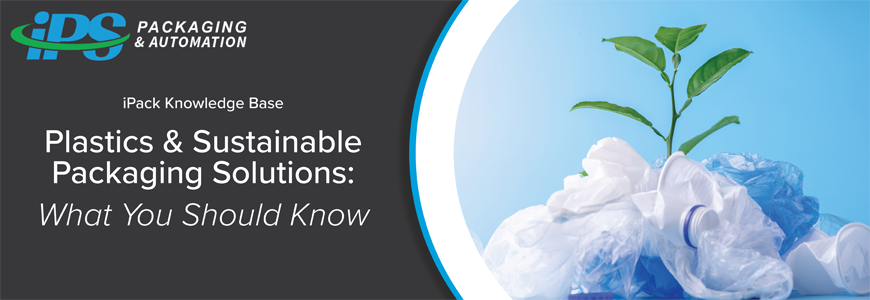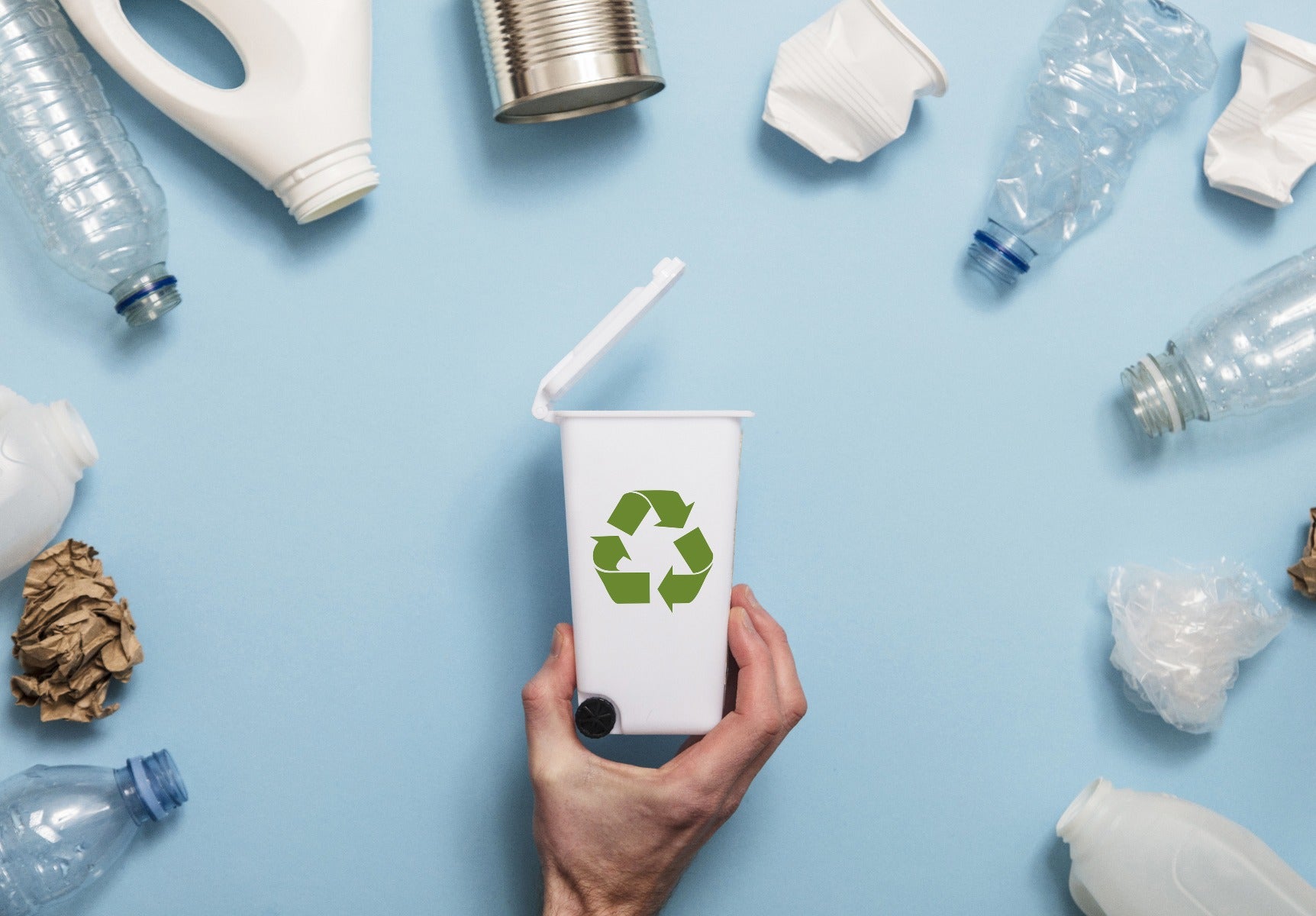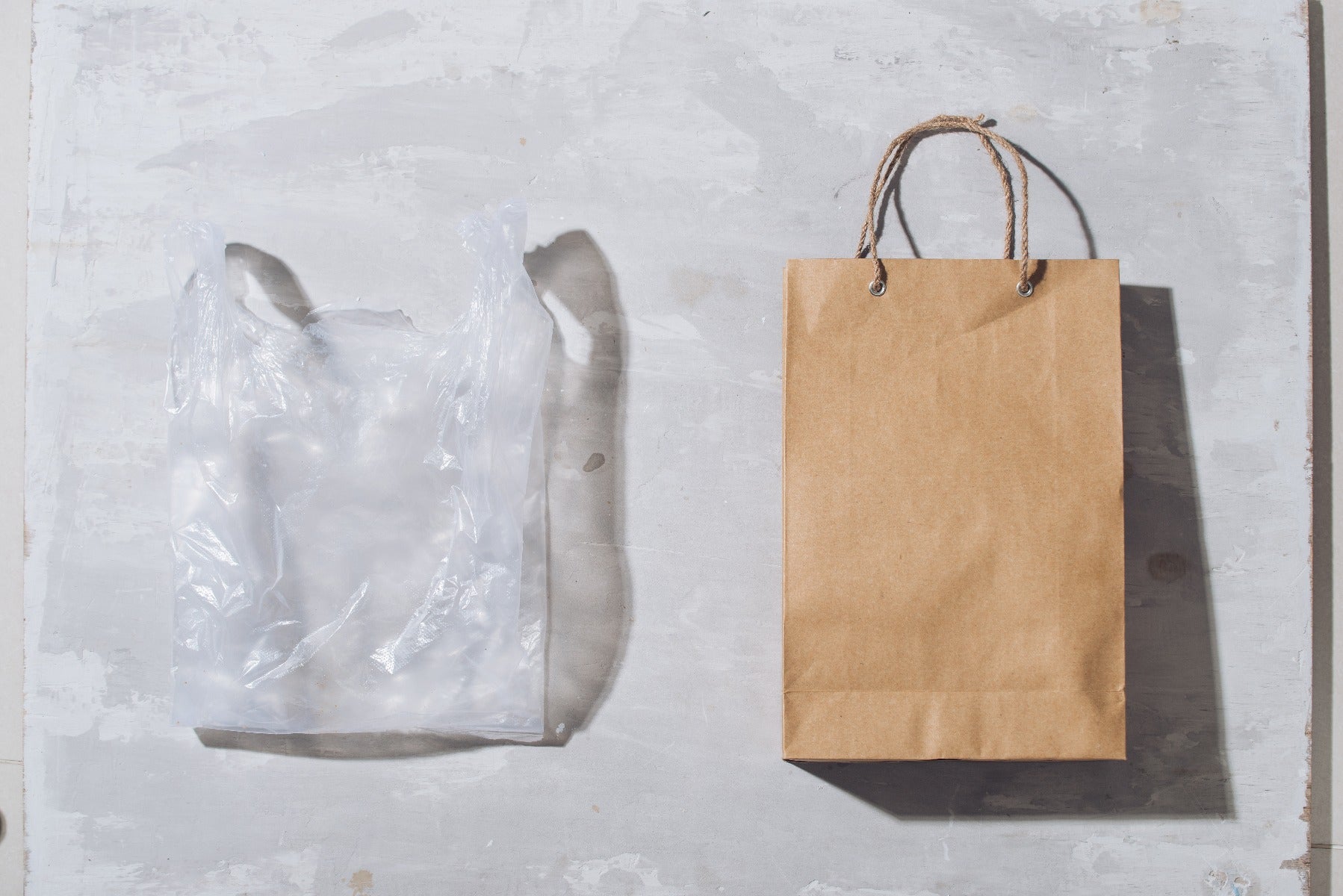

Plastics & Sustainable Packaging Solutions: What You Should Know
In recent years, consumer priorities around the world have rapidly shifted. Previously, many buyers didn’t give too much thought to how they received the items they purchased — the primary concerns were about the quality and cost of the item. Today’s customers are still highly concerned with these two elements, but we’ve lately seen a meteoric rise in interest in sustainability when it comes to the products we buy. This is especially true for plastic packaging, particularly single-use plastic packaging. More than ever before, customers across the globe are turning away from the once popular containment and protection method.

Plastic packaging is perceived as harmful to our landfills, natural landscapes, oceans, and beyond, but is it really that simple? Today, we’re breaking down the impact of plastics on the sustainable packaging solutions that are in such high demand.
What is Plastic Packaging?
Plastic packaging covers a huge range of different goods. It can be anything from the rigid container that holds your shampoo or hand lotion to the flexible plastic pouch carrying the apple sauce you bought as a convenient snack. In layman’s terms, all plastic packaging is made up of some type of synthetic polymer material that has been molded, extruded, or pressed into the solid shape that you see on the shelves of your favorite store or elsewhere. Just think back on your last grocery run, trip to the convenience store, or ecommerce purchase — how many items came enclosed in plastic? Probably a lot, and all of it is considered plastic packaging.
Sustainable Packaging Solutions – The Downsides of Plastic
Anyone who pays much attention to the most prominent sustainability issues of the modern day is sure to have heard that plastic packaging is the worst thing that’s ever happened to our planet. This is certainly an exaggeration, but there are some environmental negatives that come along with the material. Even though a large portion of plastic packaging supplies are recyclable, many people do not know how or when to do so, or they live somewhere without convenient access to a recycling program. This means that most plastic ends up in the world’s landfills – as much as 91% of it, actually. Furthermore, 8 million tons of plastic is dumped into our oceans each year and the manufacturing process emits greenhouse gases into the atmosphere, while taking up natural resources like crude oil at the same time. Does all of this mean that the way forward for sustainable packaging is to completely eliminate plastic and replace it with an alternative? Not quite.
Sustainable Packaging Solutions – The Upsides of Plastic
Despite what the critics may say, plastic packaging isn’t the very worst thing that’s ever happened to the Earth. In fact, plastic offers a few environmental advantages that simply aren’t possible with the leading alternatives, such as paper, glass, or aluminum. Each of these can be a practical substitute for plastic and may, in some regards, have a less harmful impact on the environment. However, that doesn’t make them perfect or mean that plastic packaging is all bad.

- Did you know that it actually takes as much as four times the amount of energy to manufacture a paper bag than needed for a plastic bag? Additionally, paper weighs quite a bit more than plastic, meaning that it will need more fuel for transportation, which increases its carbon footprint even further.
- The same is true for glass. While glass is nearly infinitely recyclable, it is very, very heavy. This means that it requires significantly more energy to transport. Glass packaging also almost always needs extra protective packaging around it, as glass is highly fragile and breaks easily.
- When it comes to the food and beverage industry, aluminum can be a viable alternative for canning and bottling. While aluminum is lightweight and fully recyclable, the worldwide production of the material actually takes up more than 3% of the global electric supply and it emits double the amount of greenhouse gases as that of plastic bottle manufacturing.
- Here are some other fast facts about plastic packaging materials you may be interested to know:
- The vast majority of poly bubble mailers and poly flat mailers can be recycled at a local single-use bag drop-off bin, such as the ones you might find at Walmart, Target, or your nearby grocery store.
- Recycled resins can be added to plastic packaging materials, like poly bags and poly mailers. It’s also possible to manufacture them from bio-based materials like starches.
- New programs like the How2Recycle labeling initiative make recycling incredibly simple for consumers and are easy for vendors to access and utilize.
How Does Sustainable Packaging Move Forward?
Unfortunately, the best sustainable packaging solutions aren’t always clear. In some cases, plastic packaging is still the best choice, while an alternative may be the ideal in another situation. One thing that is clear is that there must be change on a societal level in order to effectively handle some of the largest problems facing packaging sustainability. Namely, access to convenient and effective recycling programs that help individuals actually utilize them is key. That’s easy enough to say, but what can you do at the business level? Simply enough, make it obvious to your consumers how your packaging can be better for the environment. If you use plastic packaging, make sure the messaging on it directly tells your buyers how to recycle without leaving room for doubt. It may not solve the problem entirely, but it can definitely help minimize your impact.
To find the sustainable packaging solutions best suited to your business and products, let IPS Packaging & Automation help. We’ve got a diverse range of different sustainable packaging materials and a dedicated team standing by to assist. Contact us today or give us a call at (800) 277-7007.






